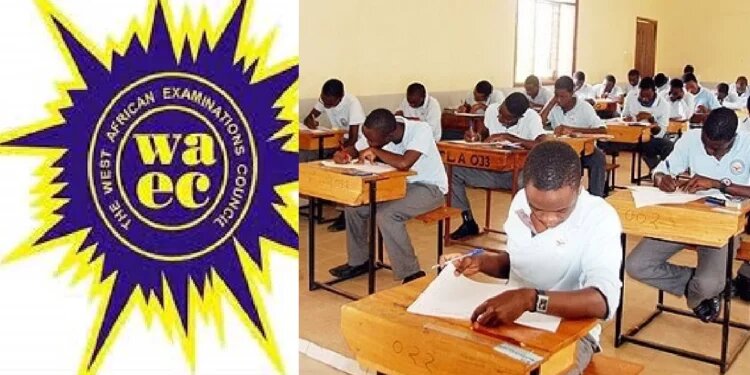Education
Inadvisability Of Dimming The Light Of Under-18 Whizkids Through Restrictions On WASC/GCE Examinations, by Isaac Asabor

In contemporary discourse, the term “whizkid” can refer to two distinct, yet equally significant figures: the musical Wizkid, a Nigerian superstar known for his infectious rhythms and global influence, and the intellectual whizkid, a young prodigy excelling in academics or specialized fields. While the former captivates audiences with his artistry and cultural impact, the latter represents the potential and promise of the youth, driving innovation and progress in society.
However, recent developments in Nigeria, particularly the pegging of age limits for writing the West African Senior School Certificate Examinations (WASSCE) at 18 years of age, have raised concerns about the future of these intellectual whizkids.
Nevertheless, critical stakeholders in the education sector have condemned the decision of the Federal Government to peg the age at which students can write the Senior Secondary School Certificate Examinations, SSCE, at 18, saying it will simply draw the sector back.
In fact, there have been flurries of reactions to the comment by the Minister of Education, Professor TahirMamman, that from 2025, any candidate, who is not up to 18 will not be allowed to write the examination and without doing so, such candidate won’t be able to seek admission into tertiary institutions.
This controversial decision has been met with criticism, as many view it as a retrogressive step that stifles the aspirations of young learners. The implications of such a policy could be detrimental, not only to individual students but also to the broader educational landscape. Are we, as a society, inadvertently placing barriers in front of our brightest minds? Who truly wants to kill the whizkid spirit in Nigeria?
The age limit for WASSCE examinations could potentially exclude many capable students who, for various reasons, may not fit the conventional timeline of education. This move raises questions about inclusivity and the recognition of diverse learning paths. The intellectual whizkids, who often demonstrate exceptional abilities outside the traditional framework, may find themselves marginalized, unable to showcase their talents and knowledge.
As we navigate this complex issue, it is crucial to advocate for policies that empower rather than restrict our youth. The future of Nigeria depends on nurturing its whizkids, musical and intellectual, ensuring they have the opportunities to thrive and contribute to society. Let us not allow outdated regulations to extinguish the flames of creativity and intelligence that our young people embody.
In a nation where academic brilliance is often celebrated as a ticket to a brighter future, recent pronouncements by the Nigerian Federal Government regarding age restrictions for writing the West African Senior School Certificate Examination (WASCE) and General Certificate of Education (GCE) have raised eyebrows. The move, which seeks to impose an age limit, has sparked a debate that strikes at the heart of educational equity and the nurturing of young talents. But who stands to gain from this policy, and more importantly, who stands to lose? Are we inadvertently stifling the very whizkids who could be the nation’s future trailblazers?
Without a doubt, Nigeria has a proud history of young academic prodigies who have defied the odds, achieving extraordinary academic feats at tender ages. These whizkids, often seen as outliers, have brought pride not only to their families but to the entire nation. They are a testament to what can be achieved when talent is recognized and nurtured from an early age. These young geniuses have gone on to excel in fields ranging from science and technology to arts and humanities, both locally and on the global stage.
The new policy proposes that students must attain a certain age before being eligible to sit for the WASC/GCE exams. Proponents argue that this will ensure students are more mature and better prepared to handle the pressures of these examinations. However, this perspective overlooks a critical aspect of child development: the unique trajectory of gifted children.
In fact, gifted children often exhibit advanced intellectual capabilities far beyond their years. Imposing an age restriction on when they can sit for exams could result in unnecessary delays in their educational progression, potentially dampening their enthusiasm for learning. These children do not fit neatly into the conventional educational timelines; forcing them to do so could be detrimental to their intellectual and emotional growth.
One of the most significant risks of this policy is the potential to frustrate and demotivate young talents. Forcing a child who is ready to take on academic challenges to wait until they reach a certain age can lead to boredom, frustration, and even a loss of interest in academics. The very system that should be nurturing their gifts could instead become an obstacle in their path.
Moreover, this policy might inadvertently signal to society that conforming to a standard timeline is more important than recognizing and cultivating individual talents. It could create a culture where fitting in is prioritized over standing out, where the fear of being seen as “different” stifles the very essence of what makes these young geniuses special.
While the intentions behind the age limit policy may be rooted in a desire to protect students, it is crucial to recognize that one-size-fits-all solutions rarely work in education. The focus should be on creating a flexible system that caters to the diverse needs of all students, including the whizzkids. Instead of imposing age restrictions, the government should consider alternative measures such as personalized education plans, mentorship programs, and accelerated learning tracks that allow gifted students to flourish at their own pace.
Nigeria cannot afford to frustrate its young geniuses. These children represent the future, and it is our collective responsibility to ensure they are given every opportunity to succeed. The nation’s progress depends on how well we nurture and support the brightest minds, regardless of their age. Let us not be the ones to dim their light.























